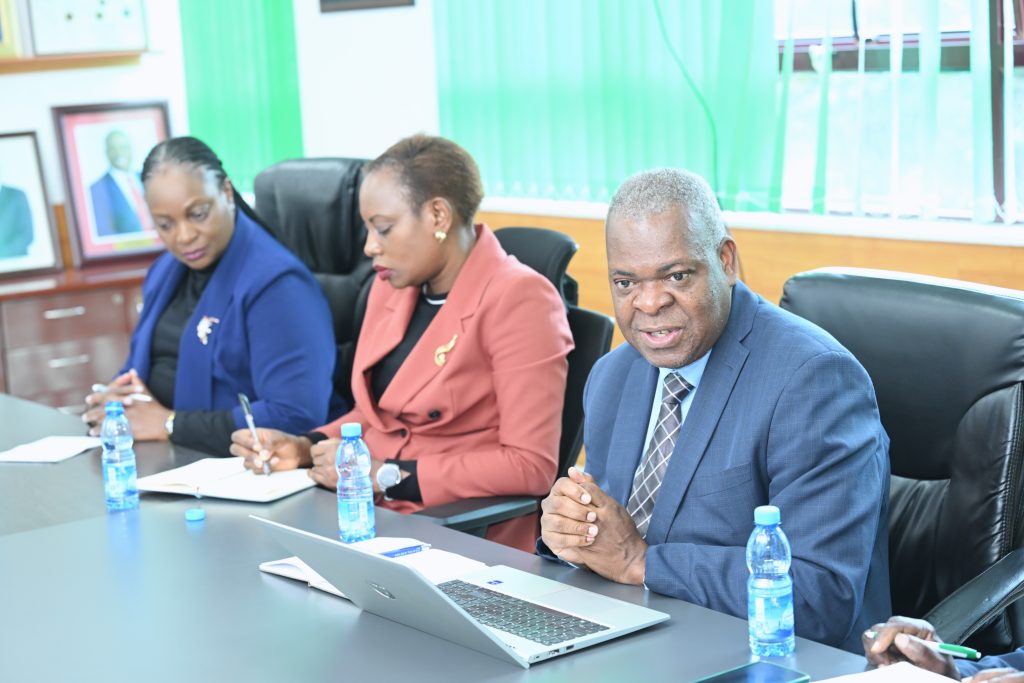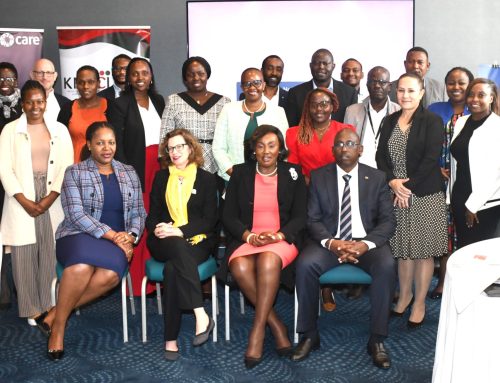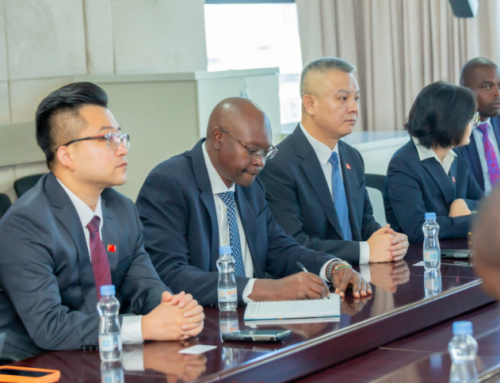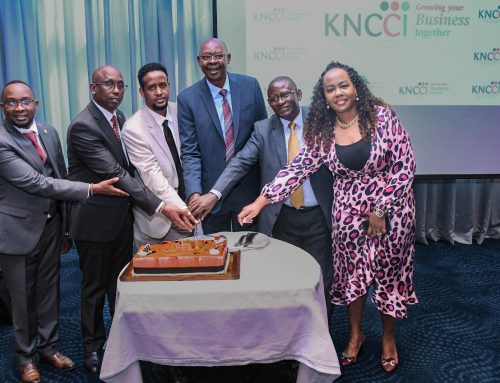
The Kenya National Chamber of Commerce and Industry (KNCCI) today welcomed a delegation from the Malawi Bureau of Standards (MBS) at its headquarters in Nairobi. The delegation is in Kenya on a benchmarking mission aimed at strengthening standards harmonization and enhancing collaboration with the private sector.
The meeting, led by Chair intra Africa trade at KNCCI Felix Chege, explored practical ways in which MBS can work more closely with the Malawi Chamber of Commerce and Industry as partners rather than regulators. Discussions covered key areas such as certification, standards awareness, and capacity building, with the objective of improving compliance, quality assurance, and competitiveness in Malawi’s private sector.
A central focus of the talks was inclusivity, particularly how segmentation strategies can better support SMEs, women, and youth entrepreneurs. By aligning standards with private sector needs, the two institutions emphasized the importance of creating an enabling environment that empowers all categories of businesses to access local, regional, and global markets.

The delegation, led by Prof. Bernard Thole, Director General of MBS, underscored the significance of the mission in the context of Malawi’s recent ratification and deposit of the African Continental Free Trade Area (AfCFTA) instruments. He noted that as a major exporter of sugar, tobacco, cotton, soybeans, and nuts — with Malawi accounting for over 90% of the groundnuts imported into Kenya — aligning standards is vital for boosting cross-border trade and regional competitiveness.
Both teams also explored opportunities to leverage the strong logistics and trade linkages between Kenya and Malawi to improve the flow of both raw materials and finished goods. The discussions highlighted the role of chambers of commerce in facilitating market access, fostering private sector growth, and maximizing the benefits of AfCFTA for businesses in both countries.
KNCCI reaffirmed its commitment to advancing partnerships that promote standards harmonization, inclusive trade, and cross-border collaboration, ensuring that businesses — especially SMEs — are well-positioned to seize emerging opportunities in the regional and global marketplace.







Leave A Comment